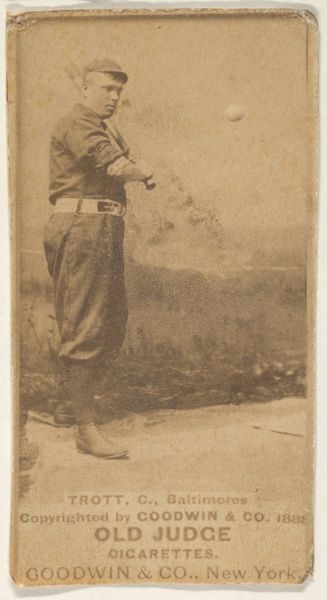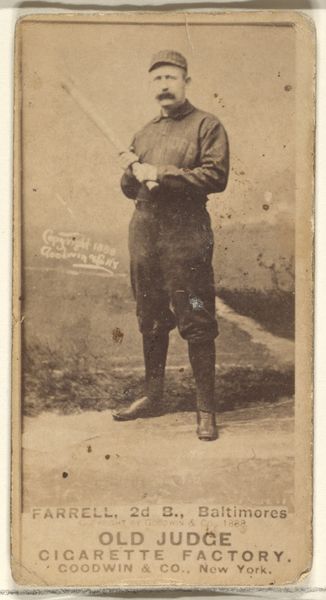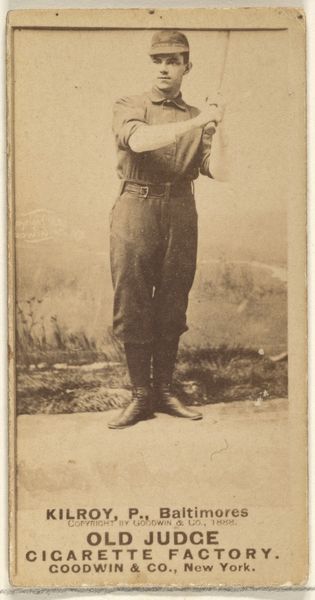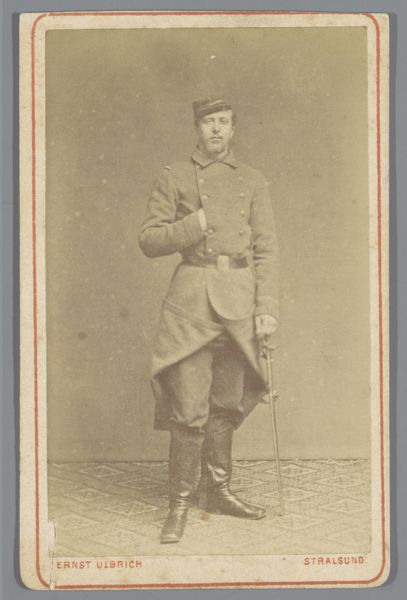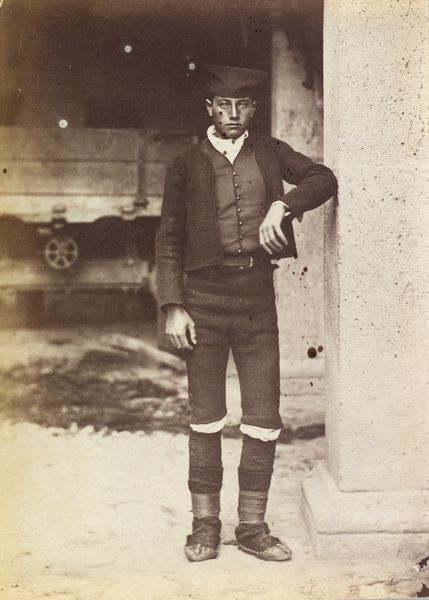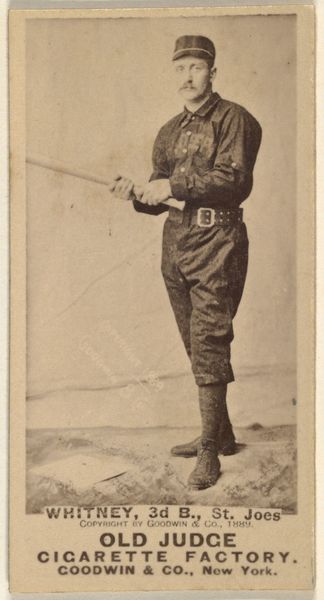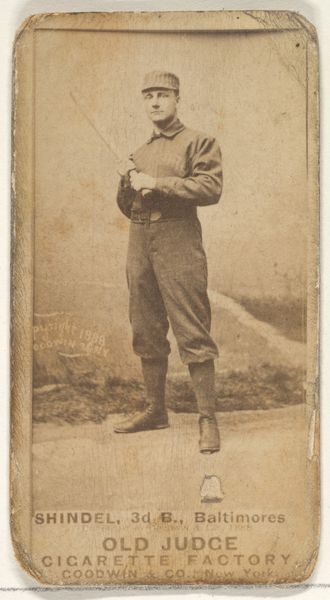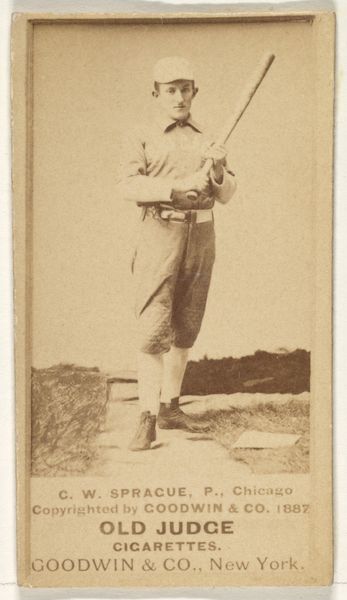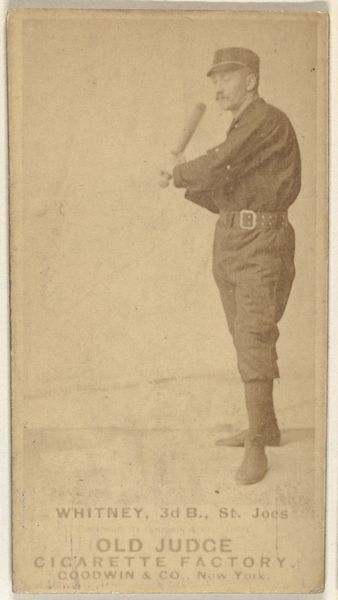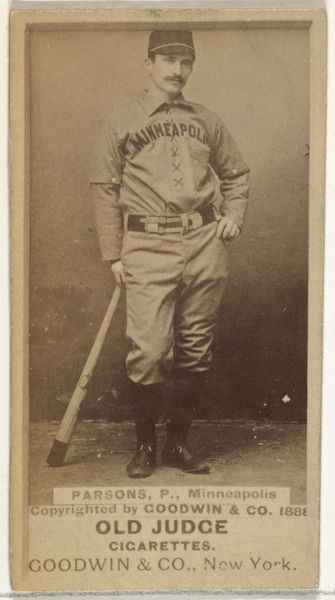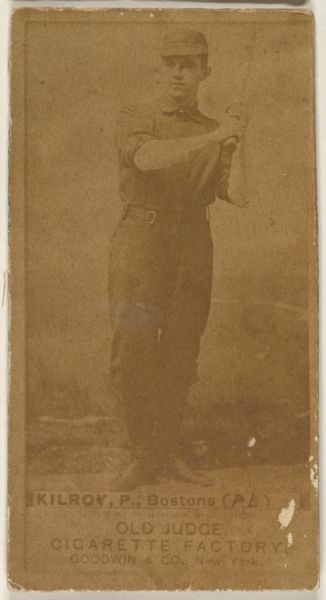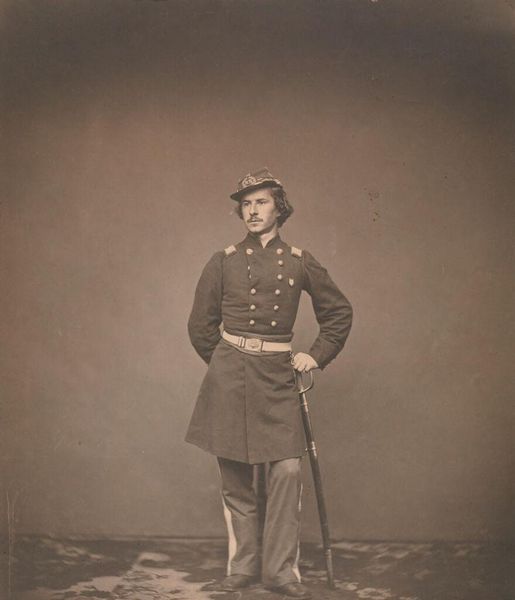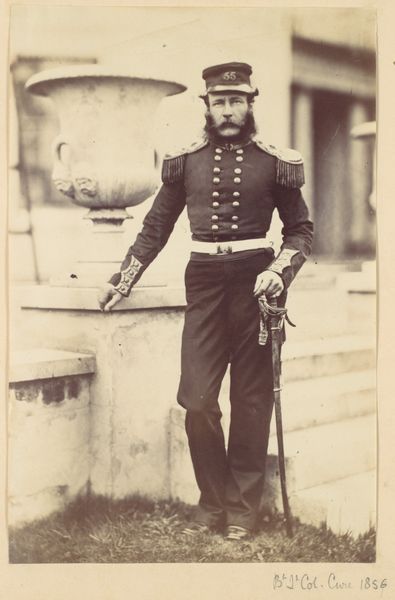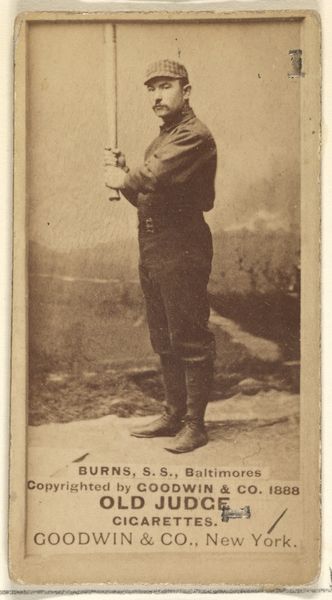
Commander Ballan on the Staff of General Bosquet (Crimean War) Possibly 1855 - 1856
0:00
0:00
photography, gelatin-silver-print
#
portrait
#
warm monochrome
#
photography
#
historical photography
#
england
#
gelatin-silver-print
#
monochrome photography
#
history-painting
#
realism
#
monochrome
Dimensions: 7 3/8 x 5 7/8 in. (18.73 x 14.92 cm) (image, sheet)23 5/8 x 17 7/16 in. (60.01 x 44.29 cm) (mount)
Copyright: Public Domain
Curator: Roger Fenton’s gelatin silver print, “Commander Ballan on the Staff of General Bosquet (Crimean War),” possibly taken between 1855 and 1856. What's your first take? Editor: Somber, stark. The flat, almost bleached landscape gives it an eerie, timeless quality. It’s less about military pomp and more about individual presence in a vast, indifferent space. Curator: The image carries significant weight when considered alongside the historical context of the Crimean War, particularly when viewed through the lens of the British social structure. Think of the early war photography—its role in shaping public opinion and even in effecting social reforms... Editor: I immediately focus on his sword. Not just its function, but its form – that gently curved blade…scimitars carry centuries of association with warfare in the East, of course, but also a hint of elegance that feels almost paradoxical here. Is this meant to soften his image, or sharpen it? Curator: His posture strikes me. Upright, formal, but the weight seems to be on his right side, perhaps a reference to a slight discomfort, a silent injury. The gaze is just beyond us, but is he looking at what’s happening? I question whether he believes what’s happening? Editor: Exactly! Those small details resonate. His medals—they’re badges of honor, sure, but here, so small, so clustered, they’re almost like an anxious talisman against that empty backdrop. Consider too how the monochrome contributes; the light is almost aggressive in the lack of shadow—suggesting how the Victorian British citizen understood duty during the Crimean War. Curator: Duty intertwined with perhaps personal discomfort, the psychological cost, certainly; I wonder about its reception amongst the British elite, and whether the portrait allowed any form of introspection as it reflected what it meant to be on a staff... There are clear conversations about race and power that we have today, as well as questioning whose narrative is recorded during war. Editor: Thinking about symbolism in historical photography really changes how we perceive documentary or 'objective' records, doesn’t it? Curator: Indeed. Hopefully this photo challenges notions of simple representation, highlighting the photographer’s and subject’s roles in forming these narratives, while also being self-reflective of contemporary issues about power in today’s world. Editor: I agree. It gives so much to reflect on.
Comments
No comments
Be the first to comment and join the conversation on the ultimate creative platform.
